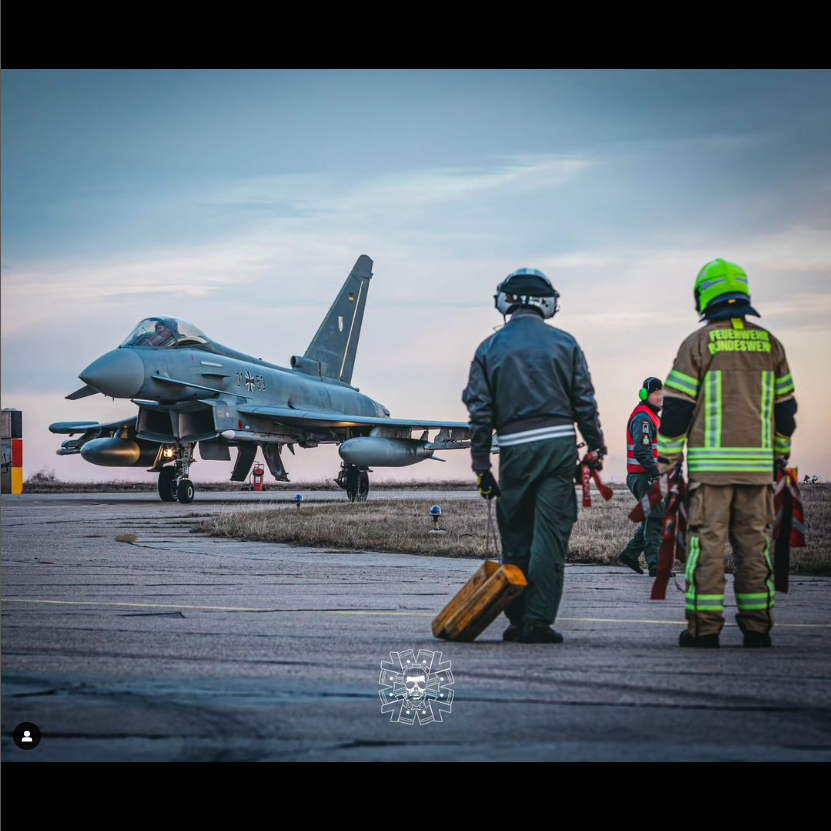"Shoulder to shoulder"
Gerald GroßShare
Operating a flying weapon system, especially at sites with reduced infrastructure, is a complex undertaking. It should therefore come as no surprise that up to 150 German soldiers and officials served on “MKAB” during Enhanced Air Policing South Romania. Naturally, the most visible personnel are those who work directly on the aircraft during flight service: pilots and maintenance.
But behind the aircraft pilots and 1st Line Maintenance there is a much less visible body of personnel, without whom the aircraft would quickly have to stay on the ground: The specialist groups of 2nd Line Maintenance resolve malfunctions, load encryption data and supply weapons and ammunition. The soldiers in the Military Intelligence Division collect information, evaluate it and prepare it to form a congruent picture of the situation. The command post controls flight operations and communicates with higher-level departments/command facilities. Military air traffic control soldiers serve as a link to the host nation's forces. The specialists in the Tactical Data Link area ensure the operation of the Link-16 network at any location. Other soldiers from various areas manage the internal service, operate the camp's infrastructure and ensure staff support. The property protection forces secure and monitor the camp and provide the necessary rescue equipment for flight operations in the form of military fire protection. The aviation doctor ensures medical care in the camp, just as the flight safety officer ensures safe flight operations. They are all led by a contingent leader and carry out their duties shoulder to shoulder. Comradeship is more than just a shell of words; it is an absolute prerequisite for the ability of the armed forces to act and deploy.
But behind the aircraft pilots and 1st Line Maintenance there is a much less visible body of personnel, without whom the aircraft would quickly have to stay on the ground: The specialist groups of 2nd Line Maintenance resolve malfunctions, load encryption data and supply weapons and ammunition. The soldiers in the Military Intelligence Division collect information, evaluate it and prepare it to form a congruent picture of the situation. The command post controls flight operations and communicates with higher-level departments/command facilities. Military air traffic control soldiers serve as a link to the host nation's forces. The specialists in the Tactical Data Link area ensure the operation of the Link-16 network at any location. Other soldiers from various areas manage the internal service, operate the camp's infrastructure and ensure staff support. The property protection forces secure and monitor the camp and provide the necessary rescue equipment for flight operations in the form of military fire protection. The aviation doctor ensures medical care in the camp, just as the flight safety officer ensures safe flight operations. They are all led by a contingent leader and carry out their duties shoulder to shoulder. Comradeship is more than just a shell of words; it is an absolute prerequisite for the ability of the armed forces to act and deploy.

